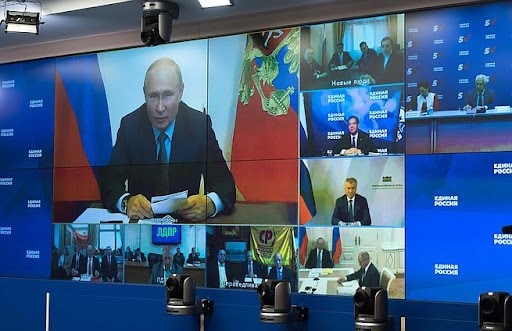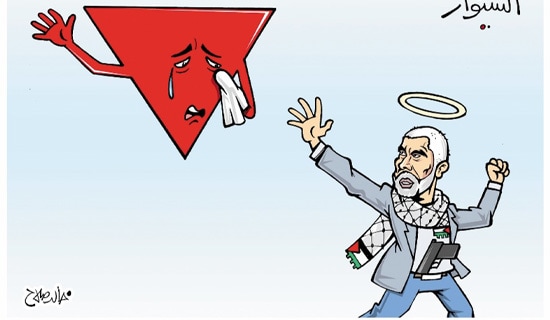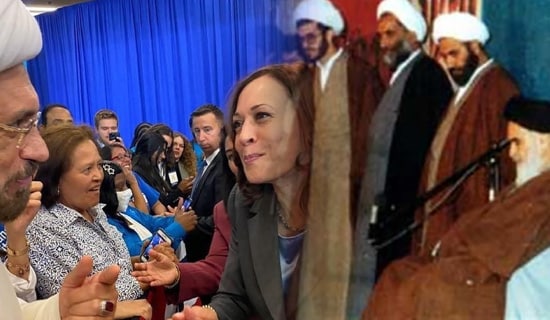In a column for Rosbalt Media, senior columnist Alexander Zhelenin writes that the low turnout for the September 19, 2021 Duma elections, and the ruling party's diminished showing prove that the populace has seen through the Kremlin's electoral reality show. In Russia's electoral dictatorship, the voter is offered a choice of parties to suit every taste except for a genuine opposition party. The Russian voter is therefore indifferent to the elections and realizes that they will not affect Russian history, and therefore there is no point in getting excited about them or challenging their predictable result.
Zhelenin's take on the elections follows below: [1]

Vladimir Putin conducts a virtual meeting with the leaders of the parties entering the next Duma (Duma.gov.ru)
"The results of the 17-19 September Duma elections, discussed below, may well satisfy the ruling authorities. They have achieved another victory, which, however, may in fact turn out to be a Pyrrhic one.
"First and foremost, these elections can serve as a sort of indicator of the Russians' political preferences. However, one shouldn't overestimate their importance, given parliament's miniscule importance in today's Russia. Of course, the Russian Constitution prescribes that bills are adopted by the State Duma and etc. Actually, however, in our [political] system parliament lags far behind in legislative and judicial importance, since for the past 20 years, the country's main body (wielding real power) is not even the office of the presidency, but the actual incumbent.
"Be that as it may, after 100% of the ballots had been counted, it emerged that United Russia's results [hereinafter - UR] worsened in comparison with the 2016 election. Back then the party got 54.2% of the votes via party lists, while these elections it received - 49.82%). Thus, the person-institution [i.e. Putin] should be quite satisfied.
"UR having won almost half the votes via party lists (let's recall that the elections were held under a mixed system: 225 deputies were elected via the proportional voting system from party lists, while 225 deputies were elected via single-mandate districts), will once again enjoy a constitutional majority in the lower house of parliament thanks to the deputies elected in single-mandate districts. To put it simply, the UR fraction will account for at least two-thirds of the mandates. Satellite parties (i.e. the CPRF, the LDPR, the SRZP) also received a respectable number of mandates.
"The CPRF, which serves as a reliable mainstay of the 'statehood-regime' (in the authorities' and the same Communist Party's parlance), has become the main beneficiary of these elections conducted against a backdrop of deteriorating citizen economic well-being, growing social protest moods, and an almost complete elimination of any real opposition [prior to the election]. Whereas in 2016 the communists won 13.34% of the votes, this time they received 18.93%. Many voters, knowing the true worth of the CPRF's 'oppositionist' nature, reluctantly voted for it following the motto, 'anyone, but the UR.'
"Judging by the results, the LDPR (7.55% of votes vs. 13.14% in the 2016 elections) received an exemplary 'spanking' for its failure to curb the Khabarovsk protests of 2020. However, as one can see, it still is in the picture. The Kremlin by all accounts has no doubts about Vladimir Volfovich's [Zhirinovsky] loyalty.
"The merger of two national-socialist xenophobic movements ('Patriots of Russia' and 'For Truth') into A Just Russia [the SRZP] provided a noticeable increase of votes to the coalition. Whereas in 2016 A Just Russia won 6.22% of votes, these elections the SRZP received as much as 7.46%. However, even this relative success was probably due to the elimination of electoral competition field amidst the background of a general rise in protest sentiments.
"Finally, the lackluster mini-sensation of the 2021 elections: a creature of Kremlin political technologists, the hastily created New People party unexpectedly made it into the State Duma with 5.32% of the votes. The party's representatives believe that their success resulted from the party's appeal to the younger voting generation of voters and addresses them in their own language. Alas, in reality, things are both simpler and more complicated.
"It is not by accident that today's Russian government is called an 'electoral dictatorship.' Governments of this type acquire legitimacy precisely via elections, at which they receive the 'people's mandate' for ruling the country.
"They push under the nose of any regime critic a certificate of election results from the Central Electoral Commission, which states that everything was fair and square and, thus the country is not a dictatorship, but the rule of the people, i.e. a democracy. All opponent arguments that the elections conducted were nothing more than a mass manipulation of public consciousness, that true opposition parties were banned from running the elections (and, what's more, were completely destroyed on the eve of campaign) bear no importance here. The [democratic] façade is what counts for an electoral dictatorship. And, as representatives of the regime believe, they are all set façade -wise.
"However, the feature of such a regime is that mere democratic imagery is insufficient. The elections game must be convincing and feel genuine. In other words, the elections should be for grown-ups as with [normal] people. As if the authorities telling to people, 'Look, here we have the party in power, this one is the opposition party, and here is still another one, and yet another ...'
"For the unsophisticated voter and the well-meaning foreign observer there are variety of parties in today's Russia. There are Communists, Socialists, Liberal Democrats, Greens, a party of entrepreneurs, and even, behold, the New People. I wish to make a few separate comments about the latest Kremlin's project.
"As I mentioned before, despite the fact that the Kremlin by definition plays the role of director in our political theatre, it takes such games rather seriously. Otherwise the audience will start jeering and shout, 'I don't believe it!' [the author refers to the Konstantin Stanislavski method of acting.] Thus, despite the miniscule role of parliament in the actual Russian system of power, the Kremlin has always taken elections rather seriously. This means that they closely monitor the slightest fluctuations in public sentiment, recorded by polling institutions, and promptly respond to society's needs, by foisting stand-ins for new parties.
"Let's note that the presidential administration has long been aware of the Russian's growing demand for change and new faces in our political theatre. Thus, the authorities answered this demand by creating the 'New People' party (naturally under the watchful eye of the Kremlin's political technologists...)
"I believe that this project will follow the fate of the Union of Right Forces [hereafter - SPS], also sponsored by the Kremlin back in the day. Most likely the voter, after tasting this dish, will very quickly see through what's 'new' about the 'New People', after which the collapse and oblivion awaits the party.
"Let's recall that the SPS was also hastily created a few months before the 1999 Duma elections, and also scored rather impressive results, receiving 8.5% of the votes (which is even more than the New People got). However, in the next parliamentary elections of 2003, the party was heavily defeated and became history.
"This time, the Russian authorities came to the elections fully prepared. For the unsophisticated voter (and the majority of voters do not understand the wiles of political technology), on the ballot, there was almost an entire spectrum of political shades to satisfy any political taste, except... for a real opposition.
"The latter was not simply banned from running the elections. The representatives of the opposition in today's Russia are either behind bars or were forced to flee the country under threat of arrest and persecution. This is what reality looks like behind the pretty facade.
"To sum up, I have a couple more thoughts on the elections' result.
"The first is about the historic collapse of the 'Yabloko' party, which has managed to get 1.34% votes (in 2016 their result was 1.99%).
"The leadership of this party, which (considering the elimination of the real opposition forces) could've easily – without a titanic effort - become a democratic alternative to the absolute authoritarianism that rules both in the Duma and in the entire country, instead withdrew the most promising candidates from the elections and hardly conducted an election campaign.
"It soon became apparent that the Yabloko's leaders didn't seek to enter the State Duma (that in turn required passing the 5% threshold.) This surprisingly coincided with the plans of the presidential administration... After all, in case the party succeeded, a few troublemakers could get into the lower house and disrupt the atmosphere of touching unity, that exists between the government and the 'opposition' on key issues.
"Instead, Yabloko's leaders decided to engage in a quite election campaign, hoping to get 3% of the votes automatically for 'correct conduct.' This would award the party the right to receive state funding and exemption from collecting signatures to qualify for the future elections (the last time party managed to pass the 3% threshold was in 2011).
"However, reality proved harsh for Yabloko. This most veteran democratic party of modern Russia has publicly committed seppuku [suicide], in a rather shameful manner.
"Yabloko has not died on the barricades, upholding its values. Without electoral support the party will simply be marginalized and will wither away. Along with the party the old Soviet liberalism, based on the one hand on idealistic perceptions, and on the other hand on unbounded conformism, will die as well.
"Paraphrasing Winston Churchill, if you choose between dishonor and war (in our case, between disgrace and war with the regime, which the party itself claims to be authoritarian), you'll get both the one and the other. In addition, your base electorate will despise the party as well.
"The second point I want to emphasize is that the aforementioned figures represent only the expression of those people who participated in the vote. In these elections the turnout was 51.68% out of 109.2 million Russian citizens eligible to vote. Only 56.5 million used this right. Thus, in order to have a real picture of citizens' political sentiments the parties' election results should be roughly halved... This method, by the way, provides a fairly accurate assessment. On the eve of the elections, some polls showed UR ratings at 24-25%.
"Considering the increasing politicization of Russian public (let's recall the mass rallies held in January and February of this year, or that Navalny's investigation about the palace in Gelendzhik was viewed by over 100 million people in a few days), the results of the current election may be indicative not of a rise in political passivity, as it may seem at first glance, but of just the opposite. The elections have demonstrated the maturing of a Russian society that is aware of these elections' miniscule significance, and becomes increasingly convinced that history will not happen in them …
"This conclusion, in turn, means that in the near future one shouldn't expect any mass protests (at least in Moscow). And it won't be the election results (at least not the State Duma elections) that will prompt people to take to the streets. What exactly will cause protests is remains to be seen."

Alexander Zhelenin (Source: Rosbalt.ru)
[1] Rosbalt.ru, September 21, 2021.








